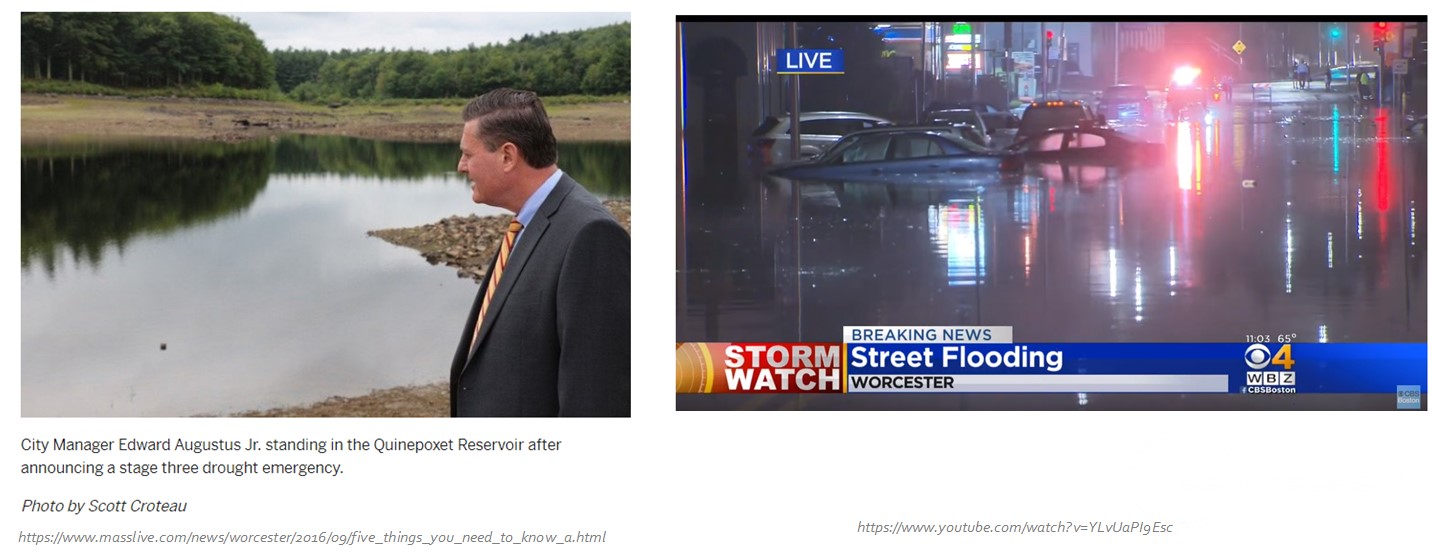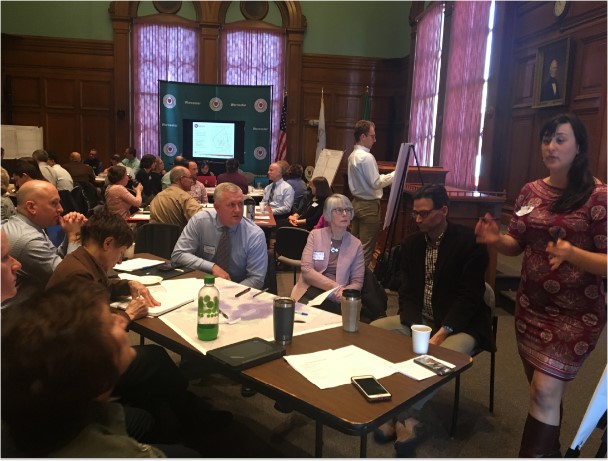
In recent years, the effects of climate change in Worcester have become more apparent, specifically in the number of extreme, and often conflicting, weather events over the last decade.
As New England now has more intense precipitation events, Worcester was twice designated America’s 2nd Snowiest U.S. City (population 100,000 or more) during the winters of 2012-2013 (109”of snow) and 2014-2015 (120” of snow). At the same time, climate change has also led to more extreme and prolonged heat waves during the summer months.
For example, in 2016, the City was in Stage III drought, yet, in the fall of that same year, an intense rain event caused severe flash flooding, exposing the City’s stormwater system vulnerabilities.

As climate change intensifies weather events, it is becoming more important than ever for the City to plan and prepare for the hazards caused by such extreme weather events.
In 2019, Worcester completed a Municipal Vulnerability Preparedness Plan. Through the MVP Planning Process, including a full-day community workshop in January, the community identified natural hazards (also referred to as extreme weather events) which are exacerbated by climate change, as well as priority actions for addressing vulnerabilities caused by these hazards. Click here to learn more. Here is a video of the listening session that summarized key findings (June 13, 2019).

Navigate to the following links for more information:

